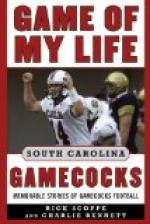I must say that I have been surrounded by many good friends, including the clergy, since I have been in Salem, whose aid has enabled me to serve a short term in the Wesleyan school at Wilbraham, Mass., also to begin a course of theological studies at Talladega college in Alabama, which I am endeavoring to complete by the sale of this publication.
CHAPTER II.—SKETCHES.
The sale of my two sisters.
I have stated that my father had fifteen children—four boys and three girls by his first wife, and six boys and two girls by his second. Their names are as follows: Toney, Azerine, Duke and Dezine, of the girls, Violet, Priscilla and Lydia; those of the second wife as follows: Footy, Embrus, Caleb, Mitchell, Cuffee, and Jacob, who is the author, and the girls, Catherine and Retta.
As I have said, old Col. Dick Singleton had two sons and two daughters, and each had a plantation. Their names were John, Matt, Marianna and Angelico. They were very agreeable together, so that if one wanted negro help from another’s plantation, he or she could have it, especially in cotton picking time.
John Singleton had a place about twenty miles from master’s, and master used to send him slaves to pick cotton. At one time my master, Col. M.R. Singleton, sent my two sisters, Violet and Priscilla, to his brother John, and while they were there they married two of the men on his place. By mutual consent master allowed them to remain on his brother’s place. But some time after this John Singleton had some of his property destroyed by water, as is often the case in the South at the time of May freshets, what is known in the North as high tides.
One of these freshets swept away John Singleton’s slave houses, his barns, with horses, mules and cows. These caused his death by a broken heart, and since he owed a great deal of money his slaves had to be sold. A Mr. Manning bought a portion of them, and Charles Login the rest. These two men were known as the greatest slave traders in the South. My sisters were among the number that Mr. Manning bought.
He was to take them into the state of Louisiana for sale, but some of the men did not want to go with him, and he put those in prison until he was ready to start. My sisters’ husbands were among the prisoners in the Sumterville jail, which was about twenty-five or thirty miles across the river from master’s place. Those who did not show any unwillingness to go were allowed to visit their relatives and friends for the last time. So my sisters, with the rest of their unfortunate companions, came to master’s place to visit us. When the day came for them to leave, some, who seemed to have been willing to go at first, refused, and were handcuffed together and guarded on their way to the cars by white men. The women and children were driven to the depot in crowds, like so many cattle, and the sight of them caused great excitement among master’s negroes. Imagine a mass of uneducated people shedding tears and yelling at the top of their voices in anguish.




